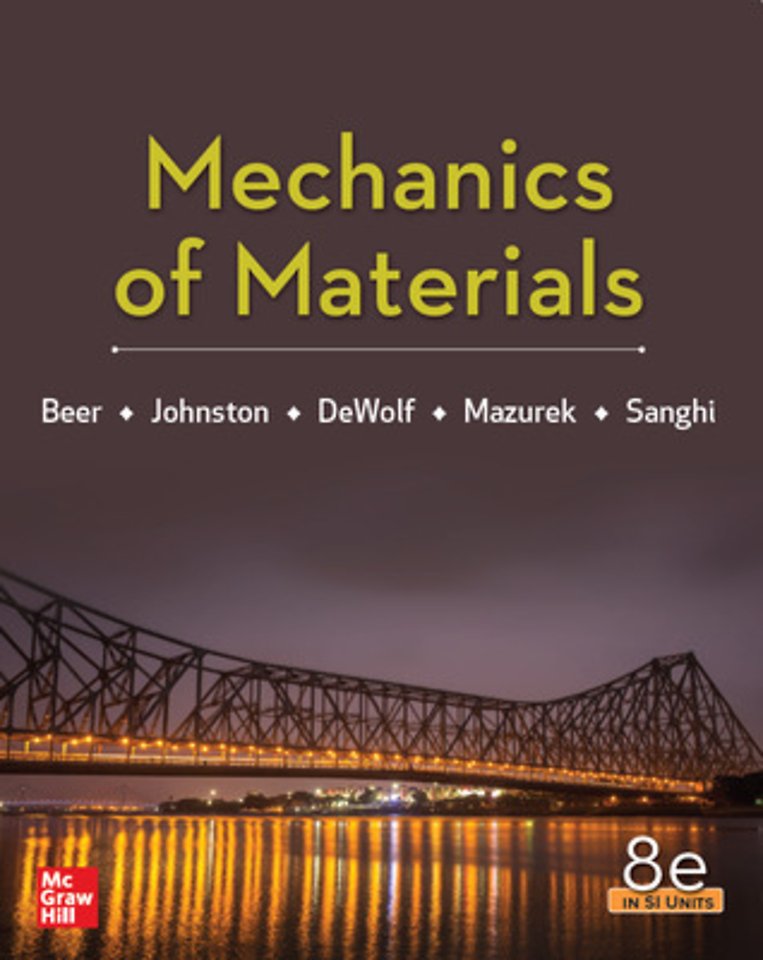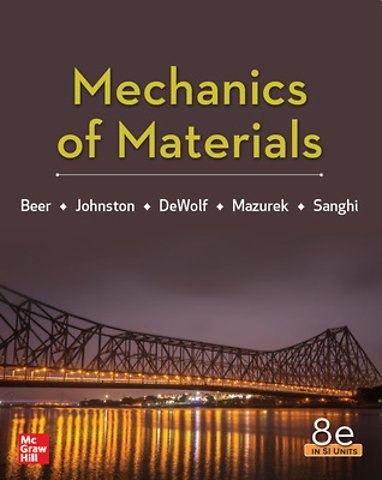Ferdinand Beer,
E. Johnston,
John DeWolf,
David Mazurek,
Sanjeev Sanghi
e.a.
McGraw-Hill Education
8e druk, 2020
9789813158979
Mechanics Of Materials 8th Edition, Si Units
Specificaties
Paperback, blz.
|
Engels
McGraw-Hill Education |
8e druk, 2020
ISBN13: 9789813158979
Rubricering
Juridisch
:
Levertijd ongeveer 11 werkdagen
Gratis verzonden
Specificaties
Inhoudsopgave
<p><SPAN>1) Introduction-Concept ofStress</SPAN></P><p></P><p></P><p><SPAN>2) Stress and Strain-AxialLoading</SPAN></P><p></P><p></P><p><SPAN>3) Torsion</SPAN></P><p></P><p></P><p><SPAN>4) Pure Bending</SPAN></P><p></P><p></P><p><SPAN>5) Analysis and Design ofBeams for Bending</SPAN></P><p></P><p></P><p><SPAN>6) Shearing Stresses inBeams and Thin-Walled Members</SPAN></P><p></P><p></P><p><SPAN>7) Transformations ofStress and Strain</SPAN></P><p></P><p></P><p><SPAN>8) Principal StressesUnder a Given Loading</SPAN></P><p></P><p></P><p><SPAN>9) Deflection of Beams</SPAN></P><p></P><p></P><p><SPAN>10) Columns</SPAN></P><p></P><p></P><p><SPAN>11) Energy Methods</SPAN></P><p></P><p></P><p><SPAN><B>Appendices</B></SPAN></P><p></P><p></P><p><SPAN>A - Principal Units Usedin Mechanics</SPAN></P><p></P><p></P><p><SPAN>B - Centroids and Momentsof Areas</SPAN></P><p></P><p></P><p><SPAN>C - Centroids and Momentsof Inertia of Common Geometric Shapes</SPAN></P><p></P><p></P><p><SPAN>D - Typical Properties ofSelected Materials Used in Engineering</SPAN></P><p></P><p></P><p><SPAN>E - Properties ofRolled-Steel Shapes</SPAN></P><p></P><p></P><p><SPAN>F - Beam Deflections andSlopes</SPAN></P><p></P><p></P><SPAN>G - Fundamentals ofEngineering Examination</SPAN>
Net verschenen
Rubrieken
- aanbestedingsrecht
- aansprakelijkheids- en verzekeringsrecht
- accountancy
- algemeen juridisch
- arbeidsrecht
- bank- en effectenrecht
- bestuursrecht
- bouwrecht
- burgerlijk recht en procesrecht
- europees-internationaal recht
- fiscaal recht
- gezondheidsrecht
- insolventierecht
- intellectuele eigendom en ict-recht
- management
- mens en maatschappij
- milieu- en omgevingsrecht
- notarieel recht
- ondernemingsrecht
- pensioenrecht
- personen- en familierecht
- sociale zekerheidsrecht
- staatsrecht
- strafrecht en criminologie
- vastgoed- en huurrecht
- vreemdelingenrecht

